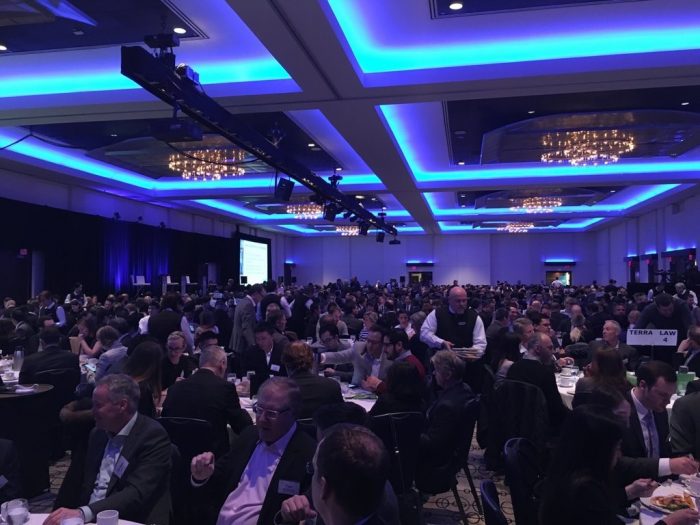Developer Forecast: What To Expect in 2016
“Continued, but softened, growth in 2016” for Metro Vancouver’s real estate market according to UDI Vancouver’s panel of development experts.

Late last week, UDI Vancouver hosted its much anticipated Annual Forecast Lunch which brought in a crowd of over 1,100 to hear John Horton, President of Shape Properties, Peeter Wesik, President of Wesgroup Properties, and Jon Stovell, President & CEO of Reliance Properties share their perspectives on the market’s driving forces and what we can expect to see in 2016.
For John Horton of Shape Properties, it is all about “global oversupply and volatility.” The oversupply of gold, oil, steel and money has led to a volatile global market, making investment timing more critical than ever. Relative to other asset classes (equities, bonds, commodities, etc.), real estate is incredibly stable and consequently far less affected by timing. As a result, there is an immense amount of capital being loaded into the real estate market. The Chinese, for example, pushed over $600 billion overseas in search of more favorable investment returns and have earmarked 7.5% ($25MM) of their 2016 international property investment for Canada, only behind the United States and Australia. Metro Vancouver, an obvious leader in the Canadian real estate market, will receive a disproportionate amount of the outflow.
Foreign money is only part of the story. The demand for new housing in Metro Vancouver is on the rise as population growth is estimated at 40,000 people per year. A global trend toward living in cities will push an additional 20,000 people into Vancouver each year. When the municipality is already at capacity, permitting only 22,000 new housing starts in 2015 there’s an obvious shortfall in supply, and it is significant.
Combine the exodus of Chinese capital, local supply challenges and the fact that Metro Vancouver checks all the boxes on requirements for overseas property investment, John predicts a near repeat of 2015. Housing prices will grow, but at a softened rate, interest rates will remain flat, mortgage rates will climb 25 basis points, cap rates will stay flat and there will be continued compression on developers’ profits.
Wesgroup Properties’ Peeter Wesik chalks the current market conditions up to “why Vancouver (Lower Mainland) is one of the best real estate markets in Canada.” From a macro level, it’s the fact that Canada is safe, rich in resources and stable in an economic, financial and political sense that makes this great place so desirable. Narrowing the focus to our beautiful province, it’s the diverse economy, positive growth, low provincial debt and deficit, as well as our abundance of amenities. In the Lower Mainland we are blessed with a diverse economy (port activity, high tech, education, tourism, etc.), a growing population and the brand of Vancouver which is “synonymous with one of the best places to live in the world.”
Pushing against this incredible demand is a supply that is geographically constrained by the very same natural amenities that draw so many residents. As a result, we have all but run out of many categories of development land including single family residential and industrial.
Wesik’s forecast for 2016 is simple economics: supply constraints and high demand result in high prices. 2016 will see positive sales volume but stable prices as it’s going to be hard to top the record-breaking sales volume of 2015. Furthermore, cap rates will remain low and there will be a general shortage of good product.
For Jon Stovell of Reliance Properties, the general prediction for the next couple years is much the same as his fellow panelists and one of a continued market strength, resilience and buoyancy. Conversely, however, Stovell also anticipates that long-term development sites will move to negative cap rates, that approximately half of all multi-family development will be purpose built rental (which won’t help the home ownership challenge) and that the legal challenges for development approvals will become even more frequent.
With this somewhat bleak outlook, Jon’s question is, how do we turn this “desperation into innovation?” Our region needs to grow up. We need to embrace the reality of the city we have become in the eyes of the world. Senior government needs to get involved and mandate municipal growth targets while municipal governments need to bring back pre-zoning and “burn the policy book” to open the doors for innovation. “We must find ways to increase housing choices, diversity and livability with ever less land and resources.”
